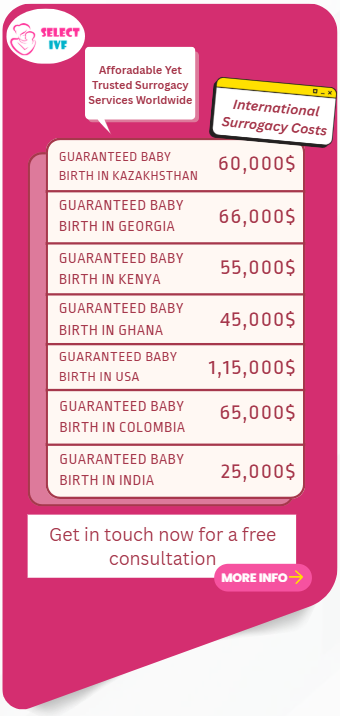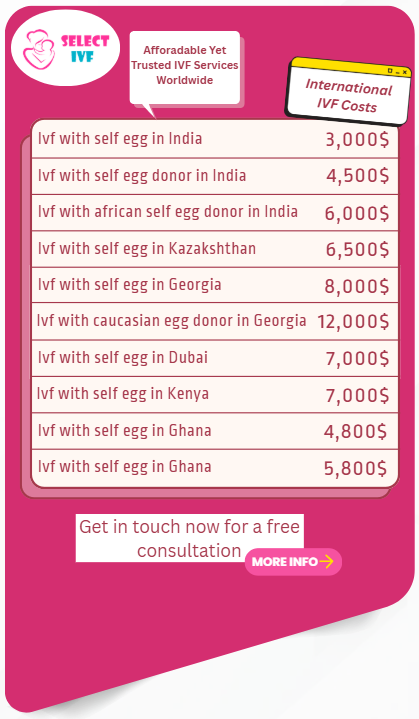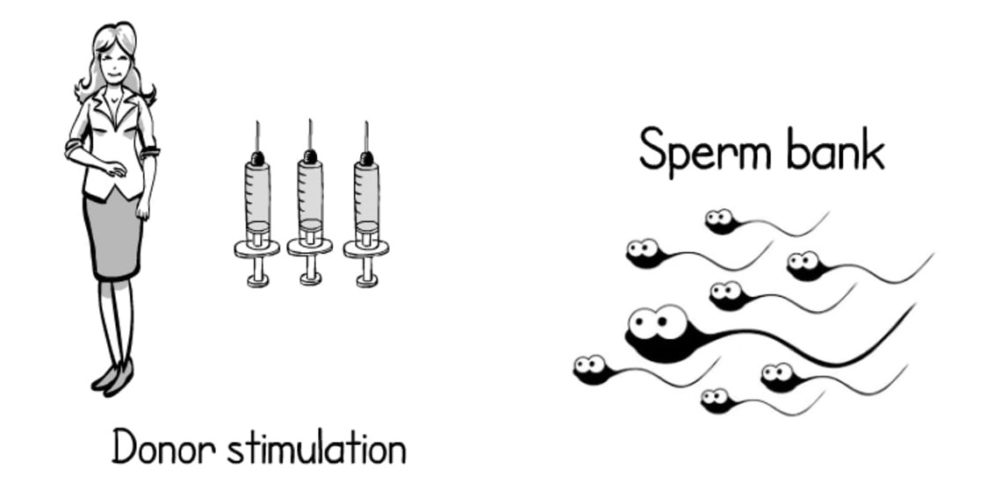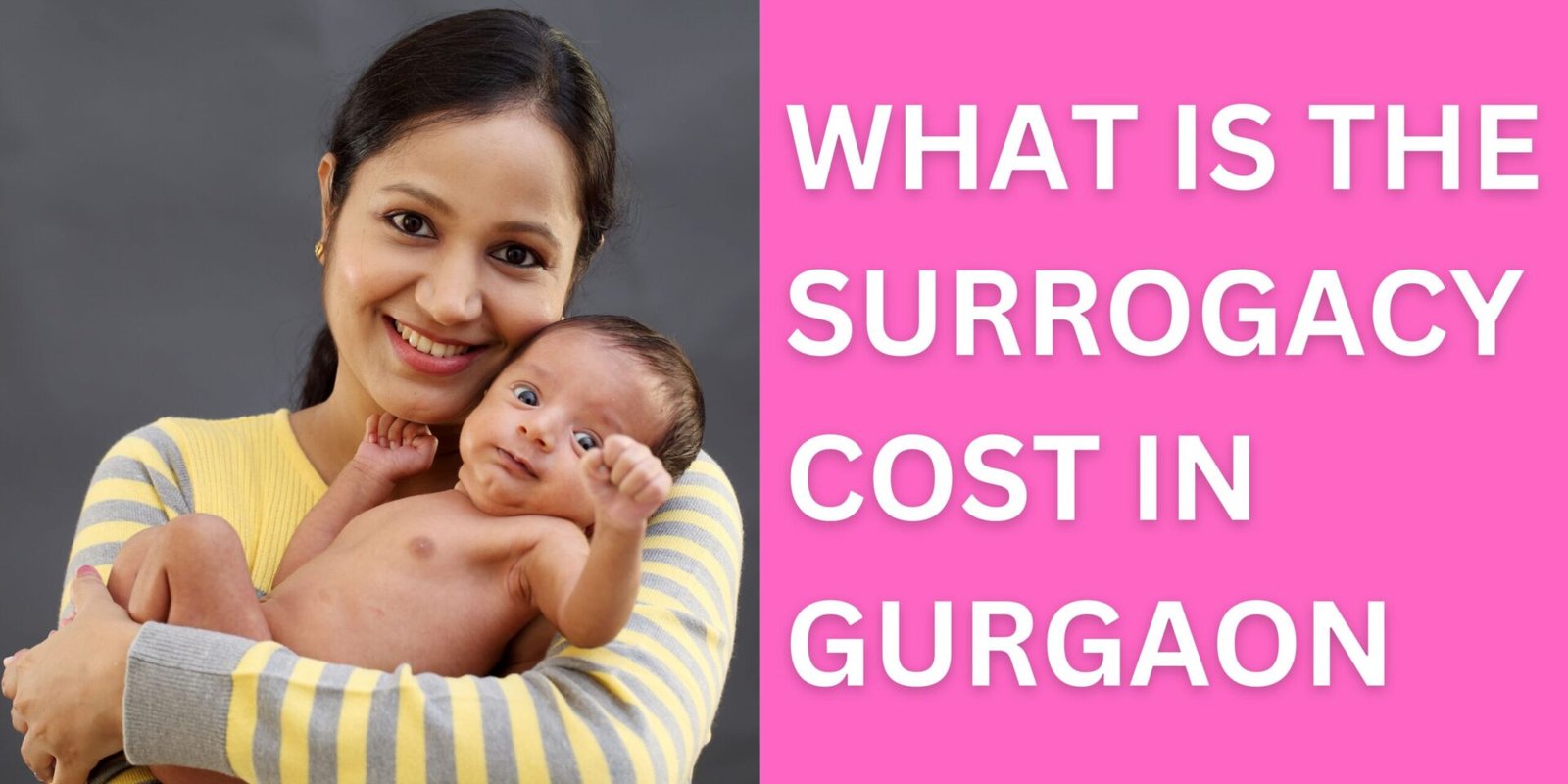Can IVF Babies Be Twins? Chances & Risks
Starting a family through IVF is a deeply personal and emotional journey. For many hopeful parents, the idea of having twins is both thrilling and overwhelming. The thought of double the laughter, double the tiny clothes, and double the love brings a special kind of excitement. But with that joy also comes questions: Is it really possible to have twins with IVF? What are the chances, and are there any risks involved?
Whether you’ve just begun considering IVF or are already on your way, understanding how twin pregnancies work through fertility treatment can help you make informed, heartfelt decisions. This article explores the beautiful yet complex possibility of having twins through IVF—from how it happens to what it means emotionally, physically, and medically. If you’ve ever dreamed of holding two little hands instead of one, you’re in the right place. Let’s walk through this journey together.
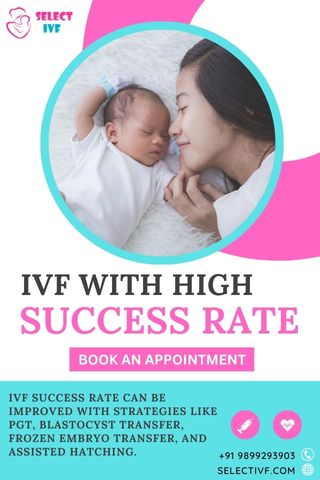
Why should you trust SELECT best IVF center in Gujarat?
- First-stage top counseling sessions
- Premium services and processes
- Sky-high IVF success rates in India
- Contact us Email ID: info@selectivf.com
- Call us: +91- 9899293903
Understanding IVF and Its Importance
In Vitro Fertilization (IVF) is one of the most widely known and trusted forms of assisted reproductive technology (ART). It is a carefully designed process where a woman’s egg is fertilized with a man’s sperm outside the body, in a highly controlled laboratory environment. Once the egg is successfully fertilized, the resulting embryo is transferred into the woman’s uterus with the hope of establishing a healthy pregnancy.
IVF is not just a treatment—it’s a lifeline for couples who have struggled with infertility and faced the emotional weight of disappointment and failed attempts. It offers renewed hope for those who thought parenthood was out of reach. Whether you’re a couple trying for several years or an individual planning to start a family on your own, IVF can open the door to new possibilities.
Who Needs IVF?
There are many reasons why someone might consider IVF, including:
- Blocked or damaged fallopian tubes: When natural fertilization is not possible due to tubal problems, IVF bypasses the tubes entirely.
- Male infertility: Low sperm count, poor motility, or abnormal sperm shape can make natural conception difficult. Advanced methods like ICSI (Intracytoplasmic Sperm Injection) allow sperm to be directly injected into the egg.
- Polycystic Ovary Syndrome (PCOS): Women with PCOS may have irregular ovulation, which IVF can help regulate through medication and controlled stimulation.
- Endometriosis: This condition can affect egg quality and implantation, making IVF a more suitable route to pregnancy.
- Unexplained infertility: Sometimes, despite all tests being normal, pregnancy does not occur. IVF offers a chance when no clear cause is found.
- Age-related infertility: Women over 35 may experience reduced egg quality and quantity. IVF with or without donor eggs can significantly increase the chances of conception.
What’s the process of IVF?
The In-Vitro Fertilisation (IVF) process is a carefully designed medical procedure aimed at assisting couples who are dealing with infertility issues. In India, leading fertility centres offer a structured and patient-friendly IVF journey that typically includes the following steps:
Initial Consultation & Evaluation
- The couple meets with a fertility specialist.
- A thorough medical history is gathered.
- Basic tests such as hormonal analysis, ultrasound, and semen analysis are performed.
- Based on the results, a personalised IVF treatment plan is created.
Ovarian Stimulation
- The female partner receives hormonal injections for about 8–12 days to stimulate her ovaries.
- The aim here is to produce multiple mature eggs, rather than the usual single egg per cycle.
- Regular ultrasounds and blood tests are conducted to monitor the growth of the eggs.
Egg Retrieval (Ovum Pick-up)
- Once the eggs are ready, they are retrieved from the ovaries through a minor surgical procedure known as transvaginal ultrasound aspiration, performed under anaesthesia.
- This process is painless and takes roughly 15–20 minutes.
Sperm Collection
- On the same day as the egg retrieval, the male partner provides a semen sample.
- If there are issues like azoospermia or low sperm count, sperm may be surgically extracted using techniques like TESA or PESA.
Fertilisation in the Lab
- The collected eggs and sperm are combined in a lab dish.
- This step can involve traditional IVF or ICSI (Intracytoplasmic Sperm Injection), where a single healthy sperm is injected directly into an egg.
- The fertilised eggs, now embryos, are cultured for 3–5 days.
Embryo Transfer
- The highest quality embryo(s) are selected for transfer.
- A thin catheter is used to place the embryo(s) into the woman’s uterus.
- This is a painless, non-surgical procedure conducted under ultrasound guidance.
Luteal Phase Support
- Following the embryo transfer, hormonal support (usually progesterone) is provided for 10–14 days.
- These medications help prepare the uterine lining for a successful implantation.
Pregnancy Test
- Around 12 to 14 days after the embryo transfer, a beta hCG blood test is performed to check for pregnancy.
- If the test is positive, the IVF specialist will provide guidance through the initial stages of pregnancy.
Follow-up and Support
- If the IVF cycle doesn’t succeed, the doctor might suggest further evaluations or adjustments to the treatment plan for the next cycle.
Can IVF Really Lead to Twins?
Yes, IVF can indeed lead to twin pregnancies — and the chances are significantly higher compared to natural conception. In a natural pregnancy, the chance of having twins is around 1 in 80 births. But with IVF, the likelihood jumps to 20%–40%, depending on the number of embryos transferred and the individual’s fertility background.
This increase happens because, during IVF, fertility specialists sometimes transfer more than one embryo into the uterus to boost the chances of a successful pregnancy. This is particularly common for older women or those who have had failed IVF cycles in the past. If both embryos implant successfully, the result is fraternal twins (two separate babies with different genetic codes).
However, IVF can also lead to identical twins, even when only one embryo is transferred. This occurs when the single fertilized embryo splits into two after implantation, creating two babies with identical DNA. While less common than fraternal twins, it still happens and adds to the surprise for many couples.
Several factors influence the chances of having twins through IVF:
- Number of embryos transferred: The more embryos placed in the uterus, the higher the chance that more than one will implant and develop.
- Age of the woman: Women under 35 are more likely to release or respond to fertility drugs with multiple eggs, increasing the likelihood of twins.
- Use of fertility medications: These drugs stimulate the ovaries to produce more eggs. If more than one egg is fertilized and transferred, this can raise the risk of a multiple pregnancy.
- Embryo quality: High-quality embryos have a better chance of implanting, and sometimes more than one may do so when transferred.
- Previous twin pregnancies: If a woman has already had twins (naturally or via IVF), the chances of twins again are slightly increased.
- Genetics and family history: Although IVF is a controlled process, if twins run in your family — particularly on the mother’s side — you may have a naturally higher chance of conceiving twins.
- Clinic protocols: Some fertility clinics encourage single embryo transfer (SET) to reduce risks associated with multiple births, while others may still offer the option of transferring more embryos depending on the case.
- Lifestyle and health: A woman’s body weight, hormone levels, and general reproductive health can also affect how the body responds to IVF treatment and embryo implantation.
IVF cost in India
The typical IVF cost in India falls between ₹1,10,000 and ₹2,20,000 for each cycle. But keep in mind, that’s just the starting point. Depending on what you need, extra procedures and tests can bump up the total cost. It really hinges on several factors, like the age of the couple, especially the woman, the number of IVF attempts needed to achieve success, the use of cutting-edge technology and techniques that can boost the success rate, and the experience and skill of the fertility doctors or IVF specialists involved.
Here’s a quick breakdown of the costs:
The following helps you understand the cost of IVF in India:
| Types of IVF treatment in India | The cost of IVF treatment in India (INR) |
| IVF with self-egg and sperm cost in India | INR 1,50,000 |
| IVF with ICSI cost in India | INR 1,65,000-1,85,000 |
| IVF with donor egg cost in India | INR 2,06,000-3,00,000 |
| IVF with donor sperm cost in India | INR 2,10,000 |
| IVF with Laser Assisted Hatching (LAH) cost in India | INR 2,10,000-2,20,000 |
| IVF with donor embryo cost in India | INR 2,05,000-3,00,000 |
| IVF with PGD technique cost in India | INR 3,00,000 |
The following will help you to understand the IVF treatment cost in different states of :
| States of India | Cost of IVF in different states of (INR) |
| IVF cost in India | INR 1,50,000 to INR 1,80,000 |
| IVF cost in Raipur | INR 1,40,000 to INR 2,00,000 |
| IVF cost in Delhi | INR 1,40,000 to INR 2,30,000 |
| IVF cost in Mumbai | INR 1,50,000 to INR 2,40,000 |
| IVF cost in Punjab | INR 1,00,008 to INR 2,00,000 |
| IVF cost in Haryana | INR 1,40,000 to INR 2,00,000 |
| IVF cost in Rajasthan | INR 1,50,000 to INR 2,00,000 |
| IVF cost in Uttar Pradesh | INR 1,40,000 to INR 2,10,000 |
| IVF cost in Madhya Pradesh | INR 1,40,000 to INR 2,20,000 |
| IVF cost in Dehradun | INR 1,40,000 to INR 2,00,000 |
| IVF cost in Bihar | INR 1,30,000 to INR 2,00,000 |
| IVF cost in Jharkhand | INR 1,40,000 to INR 2,00,000 |
| IVF cost in Assam | INR 1,20,000 to INR 1,80,000 |
| IVF cost in Gujarat | INR 1,40,000 to INR 2,80,000 |
| IVF cost in Tamil Nadu | INR 1,40,000 to INR 2,30,000 |
| IVF cost in Andhra Pradesh | INR 1,40,000 to INR 2,00,000 |
| IVF cost in Himachal Pradesh | INR 1,40,000 to INR 2,20,000 |
Difference Between IVF Twin Pregnancy and Natural Twin Pregnancy
Twin pregnancies, whether conceived naturally or through IVF, bring unique joys and challenges. However, there are important differences between twins conceived naturally and those born via IVF, especially in terms of how they occur, medical management, and risks involved.
1. How Twins Are Conceived
- Natural Twin Pregnancy:
In natural conception, twins can occur in two main ways: - Fraternal (dizygotic) twins happen when two separate eggs are released by the ovaries and fertilized by two different sperm.
- Identical (monozygotic) twins occur when a single fertilized egg splits into two embryos.
The release of multiple eggs naturally is influenced by genetics, maternal age, and certain fertility factors. Natural twins are relatively rare, occurring in about 1 in 80 pregnancies. - IVF Twin Pregnancy:
In IVF, twins often occur because doctors transfer more than one embryo into the uterus to increase the chances of pregnancy. These transferred embryos may both implant, resulting in fraternal twins. Identical twins can also occur in IVF if a single embryo splits after transfer, although this is less common. The likelihood of twins is generally higher with IVF compared to natural conception because of the controlled nature of embryo transfer.
2. Control Over Embryo Transfer
- Natural Pregnancy:
There is no control over how many eggs fertilize or implant during natural conception. The body naturally regulates ovulation and implantation. - IVF Pregnancy:
Doctors can control how many embryos are transferred. To reduce the risks of multiple pregnancies, many clinics now recommend Single Embryo Transfer (SET), especially for younger women with good-quality embryos. However, transferring multiple embryos is still common, which increases the chance of twins.
3. Medical Monitoring and Risks
- Natural Twins:
Twin pregnancies conceived naturally are typically identified during routine prenatal check-ups. Depending on the mother’s health and history, doctors may increase monitoring, but many natural twin pregnancies progress without complications. - IVF Twins:
IVF twin pregnancies are often considered higher risk due to the factors leading to infertility and the nature of treatment. Fertility treatments and the transfer of multiple embryos increase the chance of complications such as premature birth, low birth weight, and gestational diabetes. As a result, IVF pregnancies usually receive more frequent medical monitoring, including ultrasounds and specialist care.
4. Emotional and Psychological Factors
- Natural Twins:
While twins are a surprise for some couples, many feel it is a natural blessing. Parents may adjust to the news gradually as the pregnancy progresses. - IVF Twins:
Couples undergoing IVF often prepare themselves mentally and emotionally for the possibility of twins, especially if multiple embryos are transferred. The experience can bring mixed emotions—joy and excitement along with concerns about health, finances, and parenting challenges.
5. Costs Involved
- Natural Twins:
The cost of pregnancy care for natural twins generally involves standard prenatal expenses, though twin pregnancies may require extra visits and tests. - IVF Twins:
IVF treatment itself is expensive, and twin pregnancies resulting from IVF may incur higher medical costs due to increased monitoring, higher chance of complications, and potential neonatal care.
6. Success Rates and Planning
- Natural Twins:
Naturally conceived twins are not planned and occur spontaneously. - IVF Twins:
The number of embryos transferred is often planned and discussed with the fertility specialist to balance the chances of pregnancy with the risks of multiples. Couples can sometimes opt for Single Embryo Transfer to reduce twin pregnancies, but multiple embryo transfers increase the likelihood of twins.
What should you consider when selecting the top IVF clinic in India?
We understand how difficult it becomes to select the best option for your infertility treatment but do not get tense, as one of the best options is going to be suggested to you where the patient collaborates with highly experienced and qualified doctors. The patient will find it comfortable as the staff will always stand by them, away from all the worries that come to their mind. We offer all types of infertility treatment, so contact us today! To start, consider the following factors while selecting a location:
i. The patient-focused assistance of the centre
ii. Professionals with extensive education and experience
iii. Infrastructure that is well-built for maximum comfort and happiness
iv. The entire medical staff treats you with respect
v. Assists you throughout the entire process from the beginning
vi. Offers transparent fees and processes
You have the option of choosing IVF for all of these! So, reach out to us at +91- 9899293903 | Email ID: info@www.selectivf.com
Why pick Select IVF for IVF in India?
Several numbers of infertile couples trusted the select IVF for their bright future. We care for every patient who has issues of infertility. We understand the phase of infertility, and that’s why we want to assist you in your dream of achieving parenthood. The prices of IVF treatment are reasonable at our centre, We ensure the highest success rates, we keep transparency and ensure personalised care and support to our patients. Get the treatment from our clinic and make your life stress-free by hearing the giggling of your newborn.
Here’s why Select IVF is best for IVF treatment in India:
- The high success rate of IVF and other infertility treatments
- Several infertility treatments for different infertility issues
- Use of cutting-edge technologies
- Equipped with highly skilled and educated doctors
- Affordable prices for IVF and other infertility treatments
- Ensures utmost comfort and support during the procedure
Conclusion
Twin pregnancies bring twice the joy and twice the excitement, whether they happen naturally or through IVF. While natural twins occur spontaneously, IVF twins often result from carefully planned embryo transfers aimed at increasing the chance of pregnancy. IVF twin pregnancies typically involve more medical monitoring and higher risks, but advances in fertility care have made these pregnancies safer than ever before.
Understanding the differences between IVF and natural twin pregnancies helps you prepare better emotionally and physically. Always work closely with your fertility specialist and obstetrician to ensure the best care for you and your babies. Remember, whether you are expecting one baby or two, the most important thing is a healthy, happy pregnancy and a loving family.
FAQs
Are IVF twins more risky than natural twins?
Yes, IVF twin pregnancies generally carry a higher risk of complications like premature birth and low birth weight, so they require closer medical monitoring.
Can I avoid twins in IVF?
Yes, choosing Single Embryo Transfer (SET) reduces the chance of twins, but your doctor will recommend what’s best based on your health and fertility history.
Are IVF twins always fraternal?
No, IVF twins can be fraternal if two embryos implant or identical if a single embryo splits, though identical twins are less common.
Is it possible to plan for twins during IVF?
While transferring multiple embryos increases the chances of twins, most doctors prioritize safety and may not recommend it unless medically appropriate.
Do IVF twins need special care after birth?
They may need more specialized care, especially if born prematurely or with low birth weight, but many twins grow up healthy with proper medical support.

